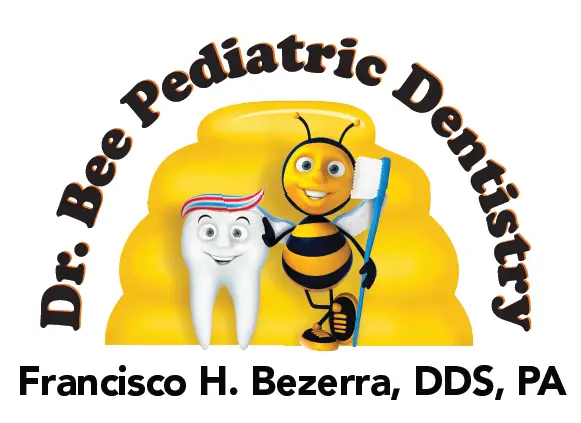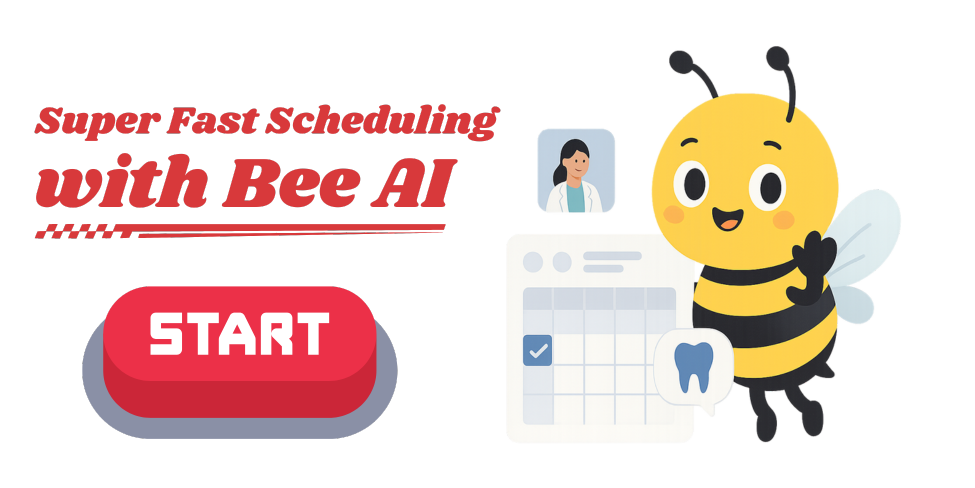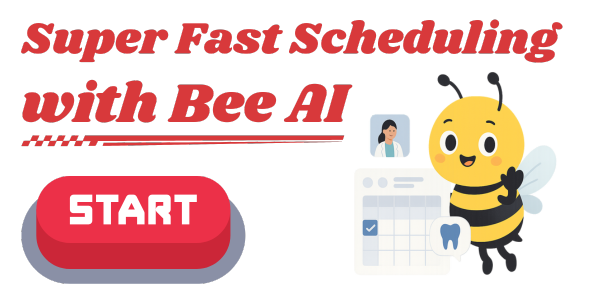DENTAL INSURANCE INFORMATION
We are happy to estimate dental insurance benefits, file claims on behalf of our patients, and follow-up with claims filing/billing.
WE ARE AN IN-NETWORK, CONTRACTED PROVIDER WITH THE FOLLOWING INSURANCE COMPANIES/DISCOUNT PLANS:
- Aetna PPO (If your plan has out of network benefits)
- Aetna DMO/HMO (If your plan has out of network benefits)
- Assurant PPO
- Ameritas
- BCBS
- Cigna PPO
- Cigna DMO – Up to age 13 not including age 13
- Delta Dental PPO
- Florida Combined Life Choice Plus PPO
- Guardian PPO
- Humana PPO
- Humana DMO/HMO – Up to age 7 not including 7
- Lincoln Financial Group
- MetLife PPO
- Mutual of Omaha Principal Financial Group
- United Concordia
- United Healthcare PPO
- SafeGuard HMO (Through Metlife)
- Sun Life Financial
- *Medicaid – Dentaquest/Liberty/MCNA * Excluding Florida Healthy Kids or any Medicaid plans where the member pays a monthly fee
- Aetna PPO (If your plan has out of network benefits)
- Aetna DMO/HMO (If your plan has out of network benefits)
- Assurant PPO
- Ameritas
- BCBS
- Cigna PPO
- Cigna DMO – Up to age 13 not including age 13
- Delta Dental PPO
- Federal BCBS Basic/Standard
- Florida Combined Life Choice Plus PPO
- Guardian PPO
- Humana PPO
- Humana DMO/HMO – Up to age 7 not including 7
- Lincoln Financial Group
- MetLife PPO
- Mutual of Omaha Principal Financial Group
- United Concordia
- United Healthcare PPO
- SafeGuard HMO (Through Metlife)
- Sun Life Financial
- *Medicaid – Dentaquest/Liberty/MCNA * Excluding Florida Healthy Kids or any Medicaid plans where the member pays a monthly fee
SECONDARY INSURANCE
If you have secondary insurance we can provide a claim form for parents to submit. Our office does not file secondary insurance.
WE ARE ALWAYS HAPPY TO SEE UNINSURED PATIENTS, TOO!
We proudly offer a 10% discount program for patients without active dental insurance or dental discount plans. The discount we provide applies to most services; however, the discount excludes surcharges and dental products for sale.
Should you have any questions or concerns regarding your dental coverage with us, please call our office! We are happy to help find out about your benefits if you are unsure what your coverage allows.
PATIENT FORMS
NEW PATIENT FORMS
Please call the office to schedule an appointment. Once the appointment is scheduled, we will send you an email with a link to give you access to your portal. In the portal it will give you access to your child’s account.
POWER OF ATTORNEY
You will need to print and notarize this form to enable someone you trust to make medical decisions on behalf of your children. Before you fill it out, keep in mind that it is a big responsibility to give someone. There are some things to ask yourself: Does the person live close by? Have you talked with them in-depth about this responsibility? Before deciding who you would like to assume this role, make sure you discuss all pertinent information with them.
ADULT CONSENT
If you need your child to be brought by someone different than you to their appointment, please make sure you fill out this form and sign it so we can proceed with their cleaning. This person can be inform of what it’s being done to your children but they cannot make decisions about your children’s treatment.
If you’re unable to open PDF files, you can get Adobe Reader® for free.

OFFICE AND FINANCIAL POLICY
IT IS OUR GOAL TO PROVIDE QUALITY DENTISTRY FOR YOUR CHILD IN A PROFESSIONAL, RELAXED AND FRIENDLY ATMOSPHERE, AND WE STRIVE TO MEET THESE GOALS DAILY. THIS LETTER STATES SOME OFFICE POLICIES THAT WE FEEL ARE IMPORTANT IN MAINTAINING A POSITIVE RELATIONSHIP.
FINANCIAL / INSURANCE POLICY
- Payment is due at the time service is rendered. Payment is the responsibility of the parent accompanying the child to the dental appointment.
- If your insurance benefits have not been verified by our office prior to your child’s initial visit, all charges must be paid in full at the time of the appointment. As a courtesy, our office will then submit the claim for this visit to your insurance company for you.
- If your insurance coverage should change, a 48-hour notice is required prior to any scheduled appointments.
- Insurance coverage is based on an estimate of your insurance benefits. You, the parent, are responsible for all amounts not covered by your insurance company. You will need to contact your insurance company with any questions regarding payment of benefits. If for some reason your account should become delinquent, you agree to pay for all rebilling charges, interest charges, collection costs, and attorney fees.
- If you have secondary insurance we can provide a claim form for parents to submit. Our office does not file secondary insurance.
- We do not accept personal checks at the time services are rendered, however, if you need to pay a previous balance due to a statement received from us, a personal check will be accepted.
- A returned check due to insufficient funds in the account will be charged according to Florida statute table of allowances.
APPOINTMENT POLICY
- Patients are responsible for keeping their scheduled appointments. We will require a deposit in order to reserve scheduled appointments for certain types of dental treatment. Deposit amounts vary based upon services being rendered; the amount will be discussed at the time we present the treatment plan to you.
- We require a 24-hour notice if an appointment cannot be kept since the time has been reserved for your child. If a 24-hour notice is not given, that appointment is considered to be a broken appointment. A broken appointment fee of $50.00 will be charged for every 30 minutes of scheduled appointment time. Second broken appointment will be grounds for dismissal from the practice.
PARENTS IN THE TREATMENT ROOM
We allow parents to be in the treatment rooms with their children, except during IV Sedation appointments since the equipment does not allow enough room for the doctors, staff, and parents.
GENERAL FAQS
Below are common questions and our answers about the best way to care for children’s teeth.
WHEN SHOULD I SCHEDULE MY CHILD’S FIRST VISIT TO THE DENTIST?
We recommend that you make an appointment to see the dentist as soon as your child gets his first tooth. The American Academy of Pediatric Dentistry recommends that children be seen by six months after their first tooth erupts, or at one year of age, whichever comes first.
HOW IS A PEDIATRIC DENTIST DIFFERENT FROM OTHER DENTISTS?
All dental specialists (pediatric dentists, orthodontists, oral surgeons, and others) begin by completing dental school, then continue their education with several years of additional specialized training. During training in the field of pediatric dentistry, your doctor gained extensive knowledge and experience in treating infants, children, and adolescents. Pediatric dentists enjoy working with children, and bring to each patient our expertise in childhood development and behavior. Because our office is geared toward young visitors, you’ll find that our staff, as well as our office design, decorations, and activities all work together to provide an especially friendly and comfortable environment for children.
WHAT HAPPENS DURING MY CHILD’S FIRST VISIT TO THE DENTIST?
The first visit is usually short and simple. In most cases, we focus on getting to know your child and giving you some basic information about dental care. The doctor will check your child’s teeth for placement and health, and will look for any potential problems with the gums and jaw. If necessary, we may do a bit of cleaning. We will also answer any questions you have about how to care for your child’s teeth as they develop, and provide you with materials containing helpful tips that you can refer to at home.
HOW CAN I PREPARE MY CHILD FOR HIS FIRST DENTAL APPOINTMENT?
The best preparation for your child’s first visit to our office is maintaining a positive attitude. Children pick up on adults’ apprehensions, and if you make negative comments about trips to the dentist you can be sure that your child will fear an unpleasant experience and act accordingly. Show your child the pictures of the office and staff on the website. Let your child know that it’s important to keep his teeth and gums healthy, and that the doctor will help him do that. Remember that your dentist is specially trained to handle fears and anxiety, and our staff excels at putting children at ease during treatment.
HOW OFTEN SHOULD MY CHILD VISIT THE DENTIST?
We generally recommend scheduling checkups every six months. Depending on the circumstances of your child’s oral health, we may recommend more frequent visits.
BABY TEETH AREN’T PERMANENT. WHY DO THEY NEED SPECIAL CARE?
Although they don’t last as long as permanent teeth, your child’s first teeth play an important role in his development. While they’re in place, these primary teeth help your little one speak, smile, and chew properly. They also hold space in the jaw for permanent teeth. If a child loses a tooth too early (due to damage or decay) nearby teeth may encroach on that space, which can result in crooked or misplaced permanent teeth. Also, your child’s general health is affected by the oral health of the teeth and gums.
WHAT’S THE BEST WAY TO CLEAN MY BABY’S TEETH?
Even before your baby’s first tooth appears, we recommend you clean his gums after feedings with a damp, soft washcloth. As soon as his first tooth appears, you can start using a toothbrush. Choose a toothbrush with soft bristles and a small head. You most likely can find a toothbrush designed for infants at your local drugstore.
AT WHAT AGE IS IT APPROPRIATE TO USE TOOTHPASTE TO CLEAN MY CHILD’S TEETH?
Once your child has a few teeth, you can start using toothpaste on the brush. Use only a tiny amount of fluoridated toothpaste (the size of a grain of rice) for each cleaning. Always have your child rinse and spit out toothpaste after brushing. Children naturally want to swallow toothpaste after brushing, and swallowing too much fluoride toothpaste can cause teeth to stain. You should brush your child’s teeth for him until he is ready to take on that responsibility himself, which usually happens by age six or seven.
WHAT CAUSES CAVITIES?
Certain types of bacteria live in our mouths. When these bacteria come into contact with sugary foods left behind on our teeth after eating, acids are produced. These acids attack the enamel on the exterior of the teeth, eventually eating through the enamel and creating holes in the teeth, which we call cavities.
HOW CAN I HELP MY CHILD AVOID CAVITIES?
Be sure that your child brushes his teeth at least twice a day with fluoride toothpaste. Flossing daily is also important, because flossing can reach spots between the teeth that brushing can’t. Check with your pediatric dentist about a fluoride supplement, which helps tooth enamel become harder and more resistant to decay. Avoid sugary foods and drinks, limit snacking, and maintain a healthy diet. And finally, make regular appointments so that we can check the health of your child’s teeth and provide professional cleanings.
DOES MY CHILD NEED DENTAL SEALANTS?
Sealants cover the pits and fissures in teeth that are difficult to brush and therefore susceptible to decay. We recommend sealants as a safe, simple way to help your child avoid cavities, especially for molars, which are hardest to reach.
MY CHILD PLAYS SPORTS. HOW CAN I PROTECT HIS TEETH?
Even children’s sports involve contact, and we recommend mouthguards for children active in sports. If your little one plays baseball, soccer, or other sports, ask us about having a custom-fitted mouthguard made to protect his teeth, lips, cheeks, and gums.
WHAT SHOULD I DO IF MY CHILD SUCKS HIS THUMB?
The large majority of children suck their thumbs or fingers as infants, and most grow out of it by the age of four, without causing any permanent damage to their teeth. If your child continues sucking after permanent teeth erupt, or if he sucks aggressively, let us know and we can check to see if any problems may arise from the habit.
WHEN SHOULD MY CHILD HAVE DENTAL X-RAYS TAKEN?
We recommend taking X-rays around the age of two or three. The first set consists of simple pictures of the front upper and lower teeth, which familiarizes your child with the process. Once the baby teeth in back are touching one another, then regular (at least yearly) X-rays are recommended. Permanent teeth start coming in around age six, and X-rays help us make sure your child’s teeth and jaw are healthy and properly aligned. If your child is at a high risk of dental problems, we may suggest having X-rays taken at an earlier age.
TREATMENT FAQS
WHEN IS DENTAL TREATMENT PERFORMED?
For patients under 6 years old, treatment is performed in the morning. We find their cooperation is better in the morning and our ability to work with them is better too! We may also recommend a morning appointment for some older children, who are nervous or anxious. Some afternoon treatment appointments are available for older children who we feel will be comfortable with treatment.
WHAT IF MY CHILD IS VERY NERVOUS?
We offer nitrous oxide (laughing gas) for patients that are a little nervous! Nitrous may or may not be covered by the insurance and our staff can help you determine the out-of-pocket cost, if applicable. For patients receiving nitrous oxide, we recommend that the patient only has a light meal beforehand. Things to stay away from are meat, greasy foods (like a burger, fries, or pizza), and dairy. Better options are toast or oatmeal. The patient will be able to resume eating these foods after their appointment.
If the child is very nervous, very wiggly, or has a strong gag reflex, we have the option of IV sedation in our Land O’ Lakes office. A Pediatric Anesthesiologist comes to the Land O’ Lakes office every Wednesday. Her fee is not covered by insurance and is based on the amount of time needed for sedation. More information about this is available if the doctor recommends sedation or if you feel your child will not be able to accomplish the treatment needed without it.
CAN I SIT WITH THEM DURING TREATMENT?
Yes! We allow one parent back in the room with the patient. We find that having more than one person in the room is distracting to the patient and to us. Some parents are nervous about treatment and opt to stay in the waiting room as not to pass the nerves onto the patient. Children can be very intuitive about what their parents are feeling, so if you feel like you will pass your feelings or anxiety onto them, we encourage you to consider staying out of the room.
WILL MY CHILD BE NUMB?
Many procedures require local anesthesia. We place topical anesthetic with a cotton tip application or “flavored jelly” as we say for our patients. We follow that with an injection, which we refer to as “sleepy juice” for the tooth. We find that using age-appropriate language helps make the procedure easier for your child. For that reason, we ask that you refrain from using words like “shots”, “needles”, or “pulling.”
WHAT TYPES OF TREATMENT ARE DONE?
Small cavities in the back teeth are restored with composite fillings, which are tooth colored. We frequently tell the patients we are “painting” on their teeth.
Larger cavities may need a nerve treatment and/or a crown. In the back, we primarily do stainless steel crowns, which are silver, but white porcelain crowns are also available. In the front, we may use a tooth colored filling material to complete the crown called a strip crown, white porcelain crown or a stainless steel crown with a white resin face. Patients should avoid biting into things with their front teeth to increase the longevity of these restorations.
We do our best to give you a treatment plan of what your child will need. However, treatment can change during the visit. Cavities tend to grow over time and we recommend completing treatment sooner rather than later.
SEDATION FAQS
WHAT CAN MY CHILD EAT OR DRINK THE DAY OF THE PROCEDURE?
Preoperative fasting guidelines exist to ensure a safe anesthetic procedure. Under anesthesia, contents from the stomach can come up and then be inhaled into the lungs. This is a rare but potentially serious complication of both general anesthesia as well as deep sedation.
We recommend nothing after midnight, however if your child’s scheduled dental procedure is after 12:00 pm, then please follow the guidelines in the following table. Your child must be fasting for the stated number of hours or the procedure will be postponed or cancelled along with a rescheduling fee.
Daily medications may be taken with a sip of water. It is permissible to brush teeth and try not to swallow the water. Please do not let your child eat any candy, mints or chew gum the morning of the procedure.
FOOD
Clear liquids
Milk, light food
Do Not Consume fried, fatty foods or protein
EXAMPLES
Water, clear apple juice, Gatorade, popsicles
Milk, cereal, toast, orange juice, pancake, waffle
Eggs, meats (bacon/ sausage), peanut butter, french fries, butter, protein smoothie
HOURS FASTING
Up until 3 hours before procedure
Up until 6 hours before procedure
None of these foods the day of procedure
WHAT HAPPENS WHEN WE ARRIVE?
You will meet your anesthesiologist on the day of your procedure. They will have already called you at home the evening prior to the procedure, and they will answer any additional questions you might have. A nurse or anesthesia assistant proficient in pediatrics will will review the medical history and go over the anesthesia plan, alternatives, and risks. They will then have you sign the “informed consent” allowing the anesthesia to proceed.
WHAT SHOULD MY CHILD WEAR?
Your child should wear loose fitting, comfortable clothing with short sleeves. They should be easy to slip on or off. They should also wear a zipped jacket or sweatshirt over the tee shirt to keep warm. All children should get a bath the night before and have clean, trimmed nails.
HOW WILL MY CHILD GO OFF TO SLEEP?
Upon arrival your child will be given an oral dose of a medication that will make them feel very relaxed over the course of 15 minutes. We will then bring your child back to the procedure room with you and they may watch tv while we connect our monitors and they inhale nitrous. An IV will be started and then the sedation continues through the IV until the procedure is finished. Your child will drift off to sleep fairly quickly and then you will be asked to wait in the waiting room until the procedure is completed. When it is safe we will have you return to the recovery room to be at your child’s side until they awaken from the anesthesia.
HOW WILL MY CHILD BE MONITORED?
During the procedure your child will be monitored according to guidelines instituted by the American Society of Anesthesiologists. Blood pressure, ECG, pulse oximetry, and EtCO2 will be carefully monitored throughout the procedure. In addition, all emergency equipment as well as drugs are readily available.
HOW WILL MY CHILD WAKE UP?
When the procedure is finished your child will just awaken over time as the anesthesia wears off usually taking between 15-30 minutes. Children may wake up grumpy or tearful which is just a side effect due to disinhibition and disorientation from the anesthesia. This may last for 10-15 minutes and just being reassuring will help this pass.
WHAT IF MY CHILD HAS AN UNDERLYING MEDICAL CONDITION?
Sedation in the office based setting is optimal for healthy patients. If your child has any underlying medical condition or taking medications on a regular basis your anesthesiologist must be made aware. Conditions such as congenital heart disease, seizure disorder, severe asthma, obstructive sleep apnea, any syndromes or significant behavioral issues may need to be done in a hospital based setting.
WHAT DO I DO IF MY CHILD IS SICK?
Children that are sick are at an increased incidence of having an anesthesia complication such as wheezing or laryngospasm. We are truly concerned about the safety of your child and given this procedure is elective, it should be performed with them in a healthy state. If your child has a fever, congestion, vomiting, etc please call the office to reschedule.
WHAT WILL RECOVERY AT HOME BE LIKE?
The effects of the anesthesia will continue to wear off as your child is at home. Keep your child in site at all times for the next 12 hours. Slowly progress the diet as tolerated.







